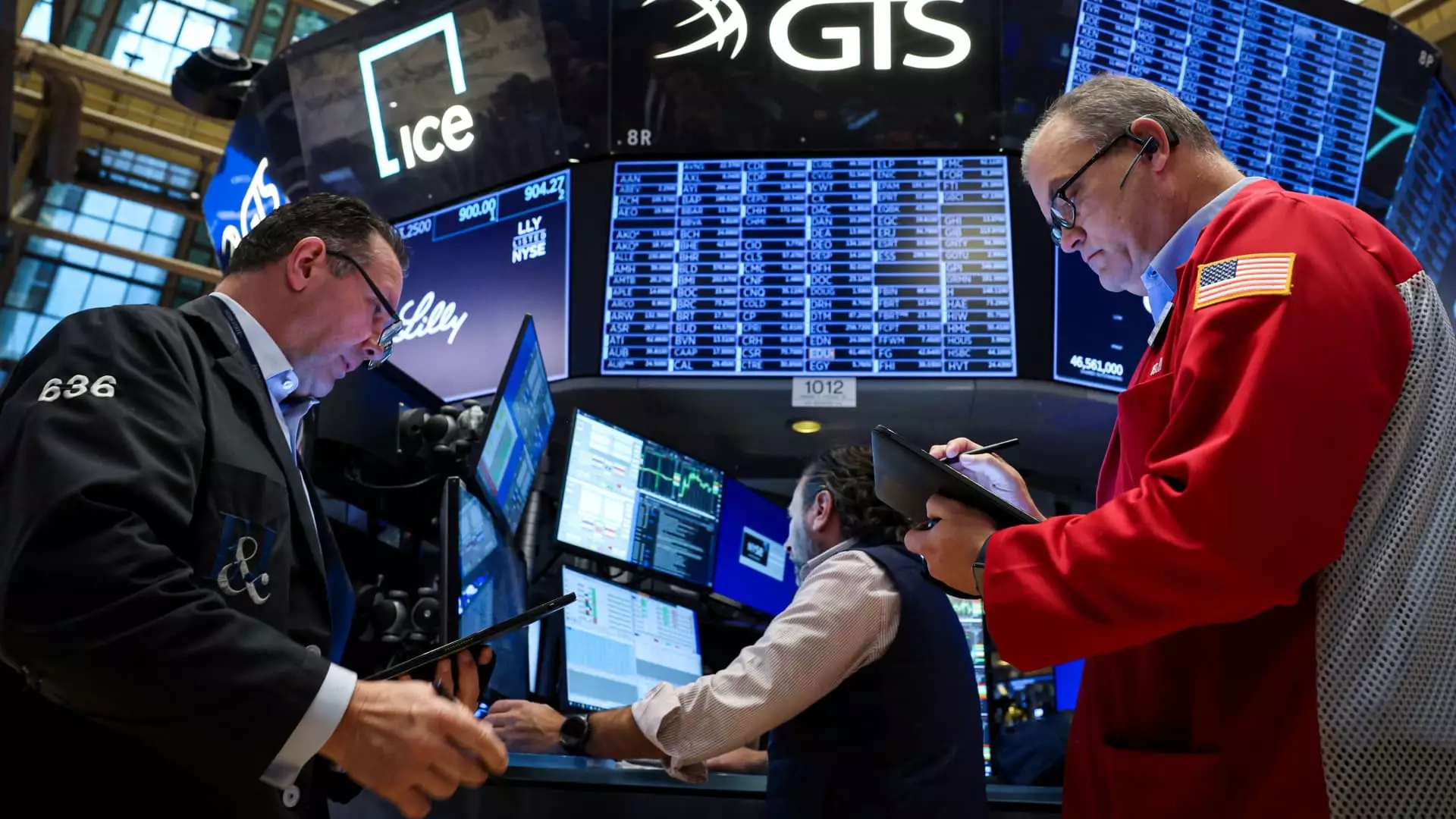As the U.S. presidential election draws near, the atmosphere in financial markets has become increasingly volatile, leaving many investors anxious and uncertain about the future. With the election just weeks away, a significant percentage of American investors—72%, according to a recent survey from F&G—express concern over how electoral outcomes may affect the economy and, subsequently, financial markets. This unease is echoed by market analysts, including Jordan Jackson of J.P. Morgan Asset Management, who suggests that the uncertainty is likely to result in market fluctuations and instability.
This apprehension was notably evident when the Dow Jones Industrial Average plummeted by over 400 points, marking its largest single-day loss since December. Both the S&P 500 and Nasdaq experienced declines as well, intensifying fears among investors about the potential impacts of the election on market dynamics. Although such fluctuations can instill panic, historical trends indicate that markets often rebound post-election, as illustrated by Jackson’s observations regarding previous election cycles.
Historical Trends and Future Optimism
Drawing from past election cycles, Jackson notes a consistent pattern: while markets may exhibit uncertainty leading up to election day, there tends to be a rebound in the latter part of the year. This historical perspective is crucial for investors grappling with the current climate, suggesting that patience may be rewarded. Jackson encourages a “stay the course” mentality, pointing towards the resilience of markets even amid turbulent times.
Furthermore, there are constructive signals emerging from economic indicators that may foster investor confidence. For instance, the Federal Reserve’s recent decision to cut interest rates appears to set the stage for additional reductions should inflation ease significantly. With the Consumer Price Index (CPI) showing a decline from 9.1% in June to 2.4% in September, there exists a favorable environment for potential economic expansion.
Corporate Fundamentals and Consumer Confidence
Alongside macroeconomic indicators, corporate fundamentals reflect a positive outlook as well. Jackson points out that despite the noise from electoral rhetoric, significant growth opportunities remain for investors who focus on corporate earnings. The optimistic view towards further market highs aligns with the overall trajectory of the economy, suggesting that there are still ample opportunities to invest wisely.
Nonetheless, the adjustment period for consumers may be slower, as households navigate rising prices even amidst increasing wages and low unemployment rates. Jackson forecasts that consumer sentiment should improve over the next year, potentially encouraging spending patterns that would further stimulate the economy.
While the impending U.S. presidential election is causing jitters in the market, a historical lens coupled with current economic indicators reveals a more nuanced picture. Investors should temper their anxieties with the understanding that volatility often precedes stability in markets. Adopting a long-term strategy, staying informed about economic trends, and focusing on corporate fundamentals could lead to fruitful investments, even in uncertain times. As markets endure the election cycle, resilience will likely prevail, guiding investors towards brighter prospects as the year concludes.

